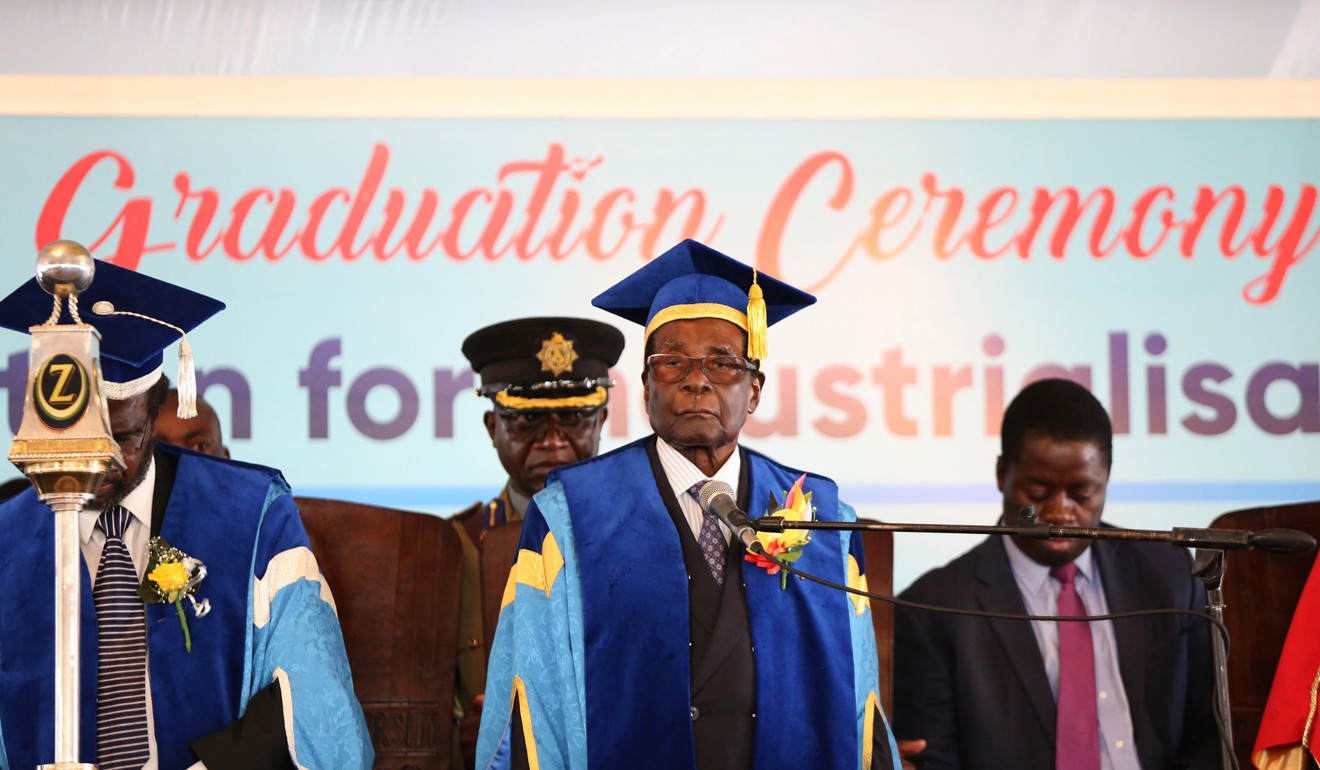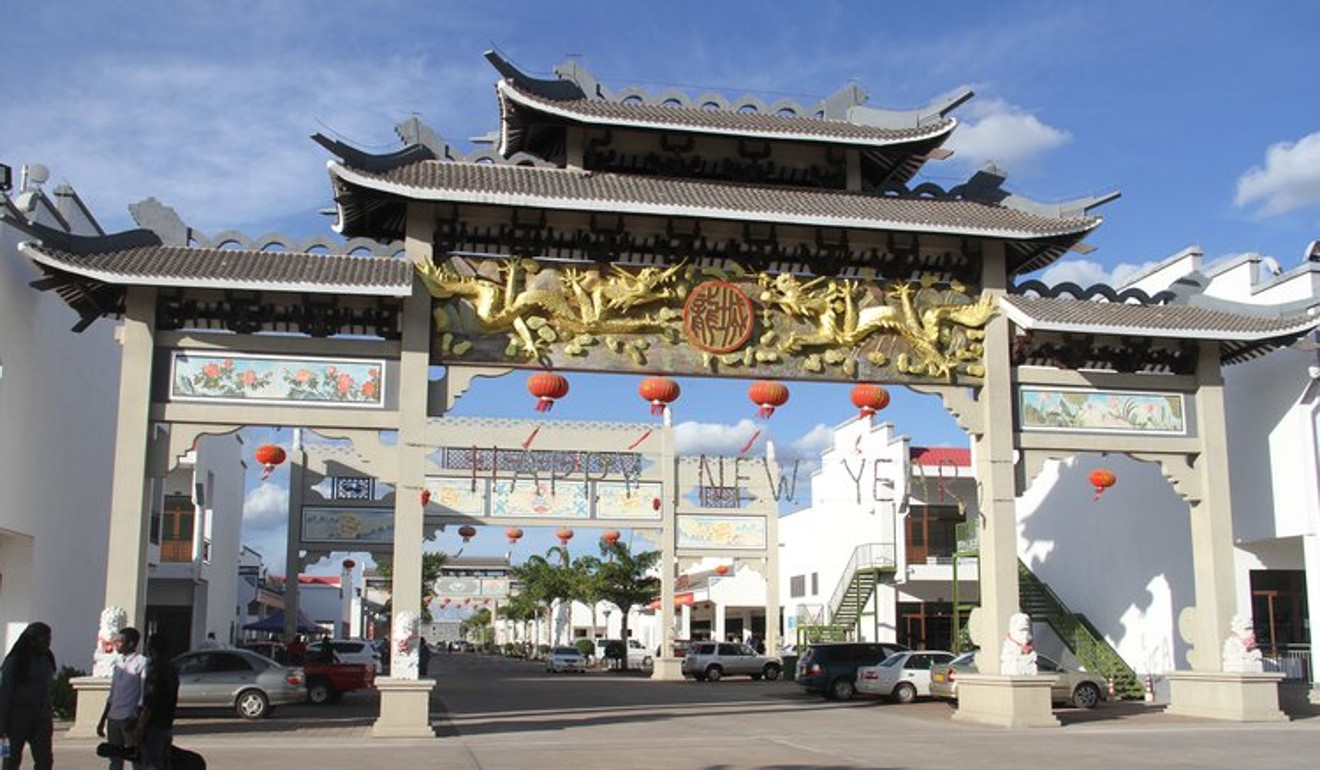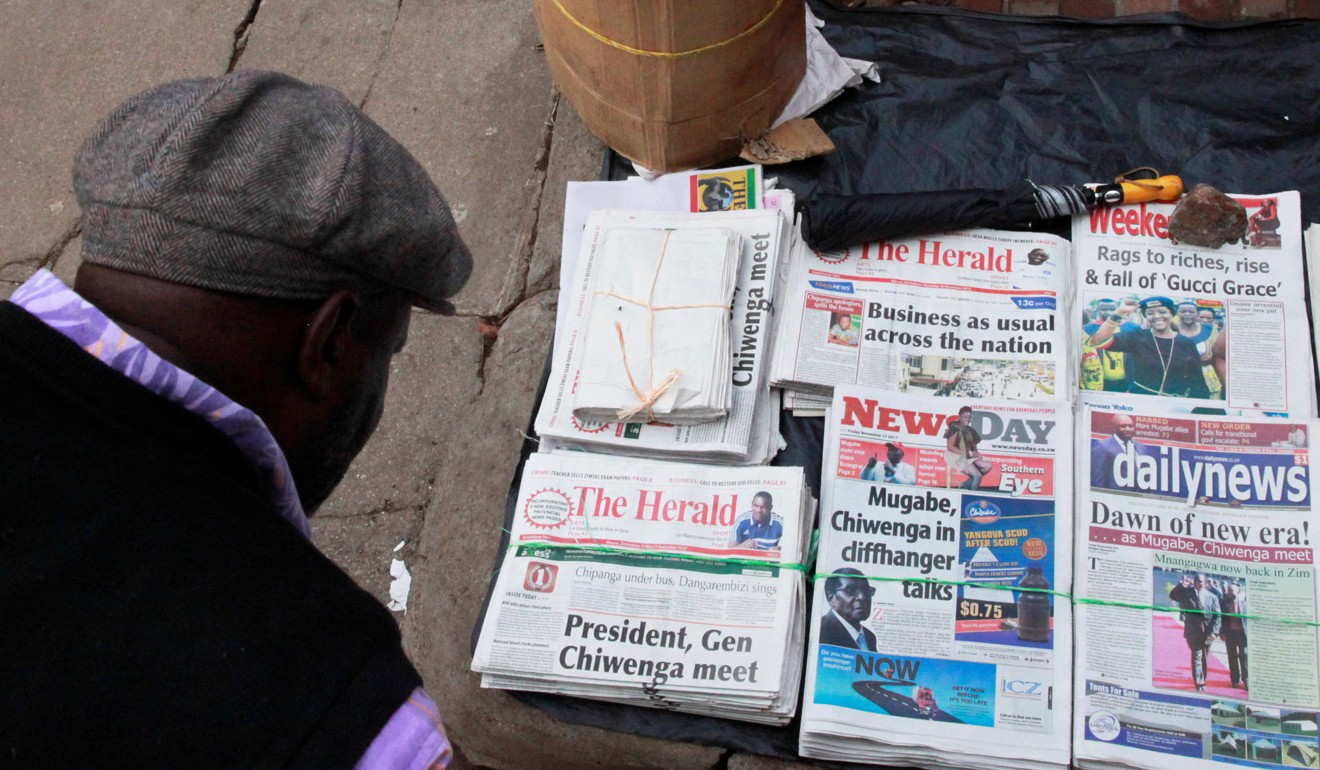
How Chinese living in Zimbabwe reacted to Mugabe’s downfall: ‘it’s the most hopeful moment in 20 years’
Business chiefs confident ‘coup’ will improve environment inside country
Chinese business figures based in Zimbabwe have expressed optimism about the country’s future despite fears about what the future holds following the military takeover of Robert Mugabe’s government.
“This is the most hopeful moment in nearly 20 years,” a Chinese factory owner who has been living in the southern African nation for 19 years told the South China Morning Post. “I think the economy will thrive again,” the businesswoman said.
Mugabe, who has been in power since the country became independent 37 years ago, was placed under house arrest on Wednesday.
The military denied it was a coup, and Mugabe attended a university graduation ceremony on Friday.
“The economy was obviously collapsing under the Mugabe government, many Chinese felt that the environment has been increasingly hostile to us,” the woman who operated a factory there said, asking to remain anonymous.
Zimbabwe has used the US dollar since 2009 after hyperinflation ruined its own currency. The government has introduced a series of laws to boost the local economy, such as a new law that requires foreign-owned companies which use products such as minerals to have 51 per cent local ownership.

However, the measures have yet to bear fruit, with the IMF ranking the country as the 22nd poorest in the world.
Once known as Africa’s “bread basket”, Zimbabwe has abundant mineral resources – including platinum, gold, diamonds and nickel.
The country is now home to more than 10,000 Chinese people, according to the Chinese embassy, and has been described by Xi Jinping as an “all-weather friend”.
China is also Zimbabwe’s biggest source of foreign currency and top trading partner, and the two have strong historical ties.

Zhao Ke, 48, who has decided to set up his own travel agency after travelling to Zimbabwe almost 20 years ago said the only setback for his business so far was having to explain to tourists what is happening in the country.
“No rescheduling, no cancellations of tours have been made because of how peaceful the transition has been,” Zhao, whose company brings up to 6,000 Chinese tourists to Zimbabwe annually, said. “Government buildings were surrounded by troops and there are some tanks, but people’s lives have been going on as usual,” he added.
Both Zhao and the businesswoman hoped the army-backed former vice-president Emmerson Mnangagwa, who is now widely expected to take over as the country’s next leader, would implement better economic policies.
But Horace Campbell, a former visiting professor at Tsinghua University in Beijing who is currently working at the University of Ghana, said the Chinese businessmen were too optimistic about the new leader.
“Mugabe and Mnangagwa have been alliance for 40 years, there is no difference in how they operate,” he said, citing Mnangagwa’s role in all the policies that have shaped the country today.
He said Chinese businessmen who have aligned themselves with officials who would later be arrested as criminals in the old administration could find themselves in trouble.

“The government that has been in power, has been kicking diamonds out of the country and not putting money back in economy… they are the ones who have business ties with the Chinese,” he said.
The military overthrown was triggered when Mugabe removed Mnangagwa, a former security chief nicknamed “the crocodile” – an act seen as paving way for naming his wife as successor.
Grace Mugabe, 52, studied Mandarin at Renmin University in Beijing.
The establishment hailed her as a role model for students when she visited in 2015.

